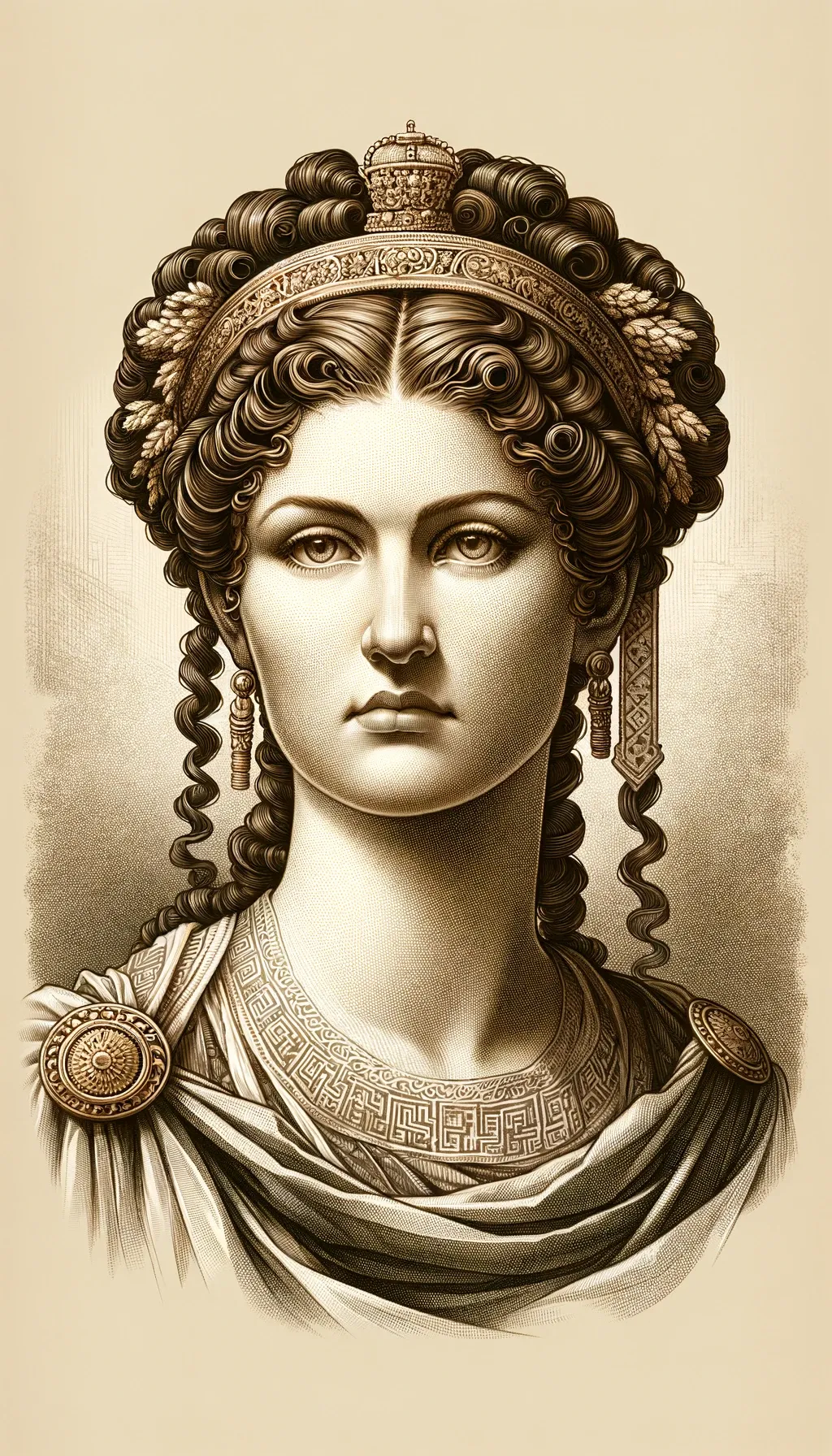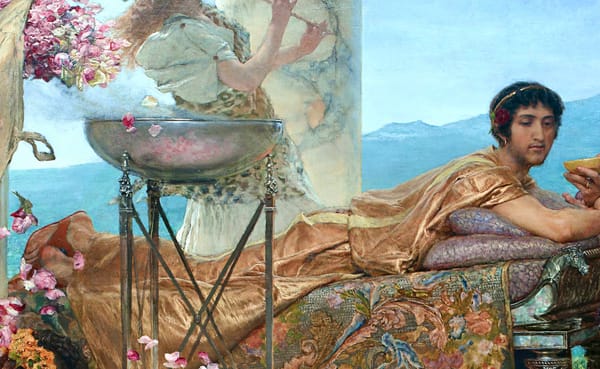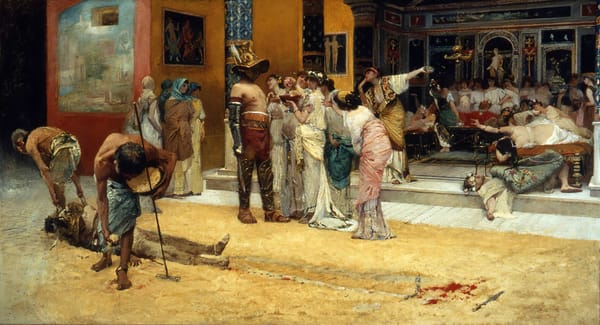Women in Ancient Rome: Lives Shaped by Society and Law
The role of women in the Roman Empire, a life within a patriarchal society, where women were legally and socially subordinate to men.

Ancient Rome was a profoundly patriarchal society, where men held positions of power in all spheres of life. Women, regardless of their social class, were legally and socially subordinate to men. This dependence severely limited their ability to own or manage property, participate in politics, and make independent decisions shaping their lives.
Women's Roles in Family and Society
In ancient Rome, women were primarily valued for their roles as wives and mothers. Early marriage, sometimes even before puberty, was common to ensure the legitimacy of heirs. The Roman family unit was dominated by the male head of the household, the paterfamilias, who held authority over all members. Women attended to the domestic sphere – managing the household, slaves (if applicable), and engaging in tasks like weaving. Though education varied by class, some upper-class women might study literature and philosophy.
Women in the Roman Empire had a number of roles, except that of the mother or wife: empress, priestess, goddess, shop owner, midwife, prostitute, and daughter but they had no public voice whatsoever; they have been largely silenced by history. Apart from rare exceptions like the poetry of Sulpicia or a lover's plea found on a Pompeii wall, our understanding of their lives comes almost exclusively through the lens of privileged Roman men.
Pliny the Younger, wrote about his teenage wife in a letter,
“She is highly intelligent and a careful housewife, and her devotion to me is a sure sign of her virtue.”
His wife was 15, that is 25 years younger than him when they got married. He also mentioned her talent in memorizing his writings!
Negative views of women were common in Roman society. The poet Ovid portrayed women as driven by "primitive" sexual urges that made them inherently irrational. In a legal setting, Cicero reminded a jury that women were placed under the control of guardians (tutores) due to their "infirmitas consilii," or weak judgment. Even Cato, a highly respected statesman, cautioned against allowing women equality, claiming "they will from that moment become your superiors."

Roman society rigidly divided women into "respectable" and "disreputable" categories. Men often held contradictory expectations, demanding their female relatives uphold strict moral standards while frequently engaging with prostitutes and lovers themselves. Clothing acted as a crucial visual marker to enforce this distinction: Respectable women wore the stola, palla, and vittae, while prostitutes wore a toga, a garment denoting male status and potentially even a sign of punishment for adultery. This strict binary reveals a society fixated on controlling women and their sexuality, despite the hypocrisy inherent in such a system.
Legal Dependence and Restrictions
Roman law significantly restricted women's independence. The concept of Tutela mulierum perpetua (perpetual guardianship) meant that women always required a male guardian – their father, husband, or an appointed male – to represent them in legal or financial matters. Even with certain inheritance rights, women could not independently manage their property.
This system was justified under the belief that women lacked the judgment to handle such affairs. While Roman society often viewed women as incapable of sound judgment (a view supported by figures like Cicero), the law did grant women some property rights within marriage. Their possessions remained separate from their husband's (except for the dowry), and they could be reclaimed upon divorce. Divorce itself was easily obtained by either party, but children remained in the father's custody (or his nearest male relative's).
However, these rights were eroded over time. In the later Empire, under legislation like Constantine's, divorce became increasingly difficult, especially for women.
Women and Property: When Practice Challenged the Law
Despite the legal limitations, some women found ways to operate with a degree of autonomy. While property ownership remained restricted, there are historical examples of women, often widowed or from wealthy families, running their own businesses, managing estates, and engaging in commerce. Such instances highlight the tension between social expectations and the capability of resourceful women.
Economic Activities Across Social Classes
Women's economic opportunities were largely determined by their social standing. Lower-class women worked alongside men in agriculture, as artisans, in markets, or as midwives. While some upper-class women might own businesses, the vast majority had less economic freedom because of legal limitations on property rights. Female slaves had varied roles, some working within homes, others in harsh conditions in fields or mines.

Prominent Women and Shifting Influences
While most women lived within the constraints of Roman society, some exceptional figures found influence. Roman women lacked any official political power – they couldn't vote, hold office, or participate in military matters. Despite these limitations, some women, particularly those from wealthy and influential families, found ways to assert influence. This might involve working behind the scenes to sway the powerful men around them, assuming respected religious roles, or, in rare circumstances, achieving a level of legal and financial independence.
Empresses like Livia, the wife of Augustus, wielded subtle yet significant political power through their relationships with prominent men. Over time, some legal restrictions were eased, especially during the Imperial period, giving women slightly greater control over property and finances.
In Roman society, powerful women often faced a backlash from men. Livia, the influential wife of Augustus, was respected for her counsel but derided by some like Tacitus, who accused her of manipulating her husband and even poisoning his rivals. Ambitious women like Nero's mother, Agrippina, who expertly navigated the corridors of power (sometimes through dubious means), could easily become scapegoats and victims. Despite her influence, Agrippina, along with Nero's wife Poppaea, were ultimately killed at his command (Faustina, too, undoubtedly had detractors).
It seems that in ancient Rome, women's lives were undeniably shaped by societal expectations and legal constraints. Even within these limitations, women played vital roles in their families and communities, and some were able to navigate the restrictions to gain a degree of influence and autonomy.









About the Roman Empire Times
See all the latest news for the Roman Empire, ancient Roman historical facts, anecdotes from Roman Times and stories from the Empire at romanempiretimes.com. Contact our newsroom to report an update or send your story, photos and videos. Follow RET on Google News, Flipboard and subscribe here to our daily email.
Follow the Roman Empire Times on social media: